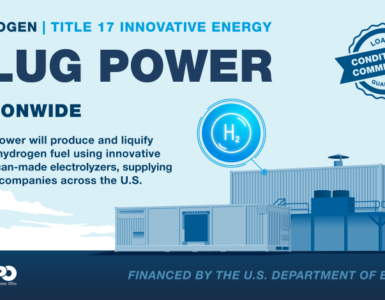28 organisations commit to switching to UK produced low carbon hydrogen from HyNet.
28 world-leading manufacturers, which supply the UK with food, drink, consumer goods, metals, paper, cars, glass and chemicals, will transition to low carbon hydrogen produced and distributed in the North West of the UK as part of the HyNet industrial decarbonisation cluster.
Companies, which include brands such as Kelloggs, PepsiCo and Jaguar Land Rover, will switch from natural gas to locally-manufactured hydrogen. This is a vital move for the UK’s transition to a low carbon manufacturing sector, founded on secure and affordable UK clean energy.
HyNet is the UK’s leading low carbon industrial cluster, spanning North West England and North Wales. From the mid-2020’s, low carbon hydrogen will be produced by the recently formed Vertex Hydrogen.
🔥 What about we co-host a webinar? Let's educate, captivate, and convert the hydrogen economy!
Hydrogen Central is the global go-to online magazine for the hydrogen economy, we can help you host impactful webinars that become a global reference on your topic and are an evergreen source of leads. Click here to request more details
By 2030, industry in the region will have reduced their carbon dioxide emissions by a total of 10 million tonnes every year – a quarter of the region’s entire emissions – the equivalent of taking four million cars off the road.
Government has selected HyNet to fast track the removal of carbon emissions from industry as a Track 1 decarbonisation industrial cluster.
David Parkin, Project Director of HyNet said:
In order for the UK to become self-sufficient in its energy production, we rapidly need to transition to a range of low carbon solutions.
“Low carbon hydrogen allows industry to make that transition whilst safeguarding jobs and attracting new industry to the region as we level-up.”
This locally produced low carbon hydrogen will provide a high volume of low carbon fuel which releases no CO2 emissions when used and can be stored to manage demand when the wind isn’t blowing or the sun isn’t shining.
David Parkin continues: “HyNet’s low carbon hydrogen is in demand. We are receiving a high level of interest from businesses who want to use it to rapidly cut their carbon dioxide emissions, helping the UK’s journey to Net Zero, and to manufacture low carbon products, driving value for the business and its customers.
“As renewable electricity generation expands, HyNet’s infrastructure can also increasingly be used to create, transport and store hydrogen made from renewable electricity.”
“In the meantime, we must decarbonise the natural gas that industry relies on today using UK technology, including carbon capture and storage, to produce low carbon hydrogen.”
The North West of England and North Wales is the largest manufacturing region in the UK with the skills base to put the UK at the heart of the global hydrogen economy.
Organisations already signed up to HyNet include:
- Kelloggs, which has manufacturing facilities in both Manchester and Wrexham, producing the nations favourite cereals, like Cornflakes, Rice Krispies and Coco-Pops.
- Jaguar Land Rover, which produces the Range Rover Evoque and Land Rover Discovery Sport models at its site in Halewood, near Liverpool, employing over 3,000 people.
- PepsiCo in Skelmersdale, where it produces Walkers Crisps and Monster Munch.
- Encirc, near Ellesmere Port, which produces 2.5 billion glass bottles each year for brands such as Budweiser, Baileys, Jameson and Pataks.
- Novelis in Warrington, which operates one of Europe’s largest aluminium can recycling plants with an annual recycling capacity of 195,000 tonnes.
- Kraft-Heinz in Wigan, Europe’s largest food processing facility, producing in excess of 1.3 billion cans of food annually, including Heinz Beanz, soups and pastas.
- Essity, a leading hygiene and health company with four manufacturing sites in the North West and North Wales, producing household brand names including Plenty and Cushelle.
- Pilkington Glass, a leading manufacturer of flat glass for the architectural market from its sites in St Helens
Each company has signed a ‘Memorandum of Understanding’ (MoU) with the intent of receiving a future network connection and supply of hydrogen through the HyNet infrastructure.
Demonstrations of switching from the fossil fuel, natural gas, to hydrogen within HyNet have already taken place at Pilkington Glass and Unilever, both located in Liverpool City Region.
Further trials, which have received initial support from Government, are planned over the next two years across a wide range of industrial sectors.
About HyNet
HyNet is a low carbon energy project at the forefront of the UK’s journey to a Net Zero future, being developed by a consortium of world-leading organisations.
From the mid-2020’s, HyNet will produce, store and distribute hydrogen as well as capturing and storing carbon. It will decarbonise the North West of England and North Wales through the creation of state of-the-art infrastructure.
This game-changing project has the potential to reduce carbon dioxide (CO2) emissions by 10 million tonnes every year by 2030 – the equivalent of taking four million cars off the road.
HyNet will create and maintain thousands of local jobs, as well as enable long-term sustainability for businesses and financial security for communities across the region.
The HyNet consortium includes Progressive Energy, Cadent, Essar, INOVYN, Eni, University of Chester, Vertex Hydrogen, CF Fertilisers, Viridor and Hanson. For more information, visit www.hynet.co.uk
28 organisations commit to switching to UK-produced low carbon hydrogen from HyNet, April 14, 2022








